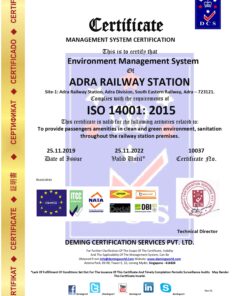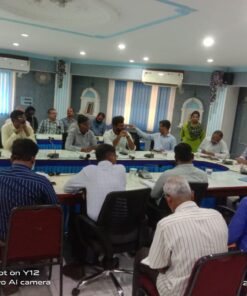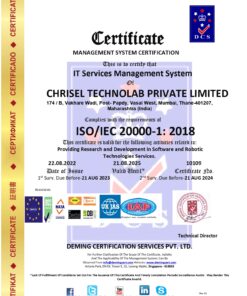Sale!
BS 7799/ISO 27001 : Information Security Management System
Original price was: ₹35,000.00.₹29,990.00Current price is: ₹29,990.00.
BS 7799 and ISO 27001 are standards related to Information Security Management Systems (ISMS). They provide a framework for organizations to establish, implement, maintain, and continually improve an ISMS. Let’s delve into each of these standards:
### BS 7799
BS 7799, which stands for British Standard 7799, was the first standard published in 1995. It was later revised and updated in 1999 as BS 7799 Part 1 and 2002 as BS 7799 Part 2. The BS 7799 Part 1 focused on the Code of Practice for Information Security Management, while Part 2 provided a specification for an ISMS.
### ISO 27001
ISO/IEC 27001 is an international standard that was published in 2005 by the International Organization for Standardization (ISO) and the International Electrotechnical Commission (IEC). It is based on the earlier BS 7799 Part 2 standard and provides requirements for establishing, implementing, maintaining, and continually improving an ISMS within the context of an organization’s overall business risks.
### Key Components of ISO 27001
1. **Scope**: Define the boundaries and applicability of the ISMS within the organization.
2. **Risk Assessment**: Identify and assess information security risks to determine the necessary security controls.
3. **Policies and Procedures**: Establish policies, procedures, and processes to manage information security within the organization.
4. **Objectives and Controls**: Define information security objectives and select appropriate controls to mitigate identified risks.
5. **Implementation**: Implement the selected controls and integrate them into the organization’s processes.
6. **Monitoring and Review**: Monitor and review the ISMS to ensure its effectiveness and make necessary improvements.
7. **Continuous Improvement**: Continually improve the ISMS based on monitoring results, audit findings, and changes in the organization’s business environment.
### Benefits of Implementing ISO 27001
1. **Enhanced Security**: Implementing ISO 27001 helps organizations identify and mitigate information security risks, thereby enhancing the overall security posture.
2. **Compliance**: Achieving ISO 27001 certification demonstrates compliance with international standards and regulatory requirements related to information security.
3. **Business Continuity**: Effective management of information security risks helps ensure business continuity and resilience against potential threats.
4. **Customer Confidence**: Customers and stakeholders gain confidence knowing that the organization has implemented a robust ISMS to protect their information.
5. **Competitive Advantage**: ISO 27001 certification can provide a competitive advantage by demonstrating commitment to information security to customers, partners, and regulators.
### Conclusion
Both BS 7799 and ISO 27001 provide valuable frameworks for implementing an ISMS. While BS 7799 was the precursor to ISO 27001 and was widely adopted in the UK, ISO 27001 has gained international recognition and is globally accepted. Organizations can choose to implement either standard based on their specific needs and objectives. Implementing and maintaining an ISMS in accordance with these standards demonstrates an organization’s commitment to protecting its information assets and managing information security risks effectively.










Reviews
There are no reviews yet.